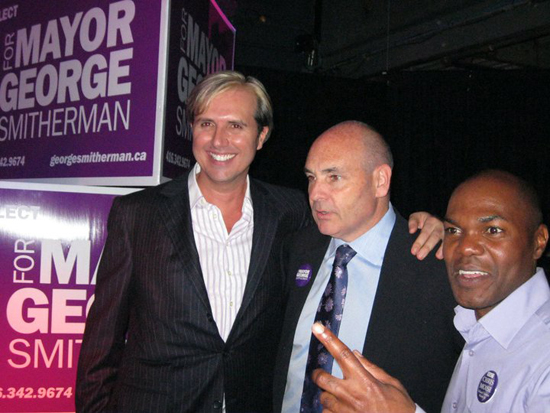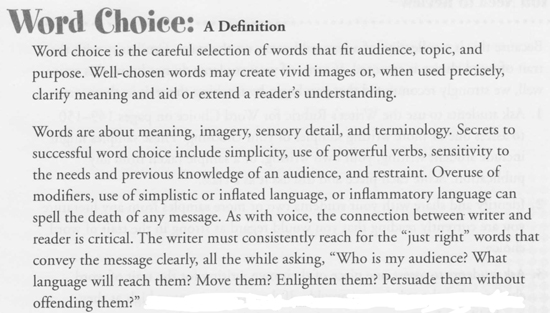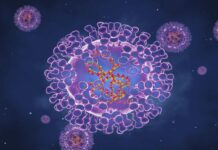
USE YOUR WORDS :: I was saddened to hear of the passing of former Ontario deputy premiere George Smitherman’s husband, Christopher Peloso, just before 2014 arrived. Although I only met Christopher a couple of times, George I have known since we were young men. He is in the orbit of people very close to me, I’ve interviewed him several times, and I was hired to introduce George to the world as Toronto’s first openly gay mayor on that historic night Rob Ford shocked us all and stole the race. To learn of George and his family’s loss was a blow, and I wish that they know peace as they progress through a difficult experience.
Following the news about Christopher, it was heartening on New Year’s Eve to read former MP and former premier of Ontario Bob Rae’s call in The Globe & Mail for a national plan on suicide prevention. Rae highlighted a string of suicides in his recent experience, including Christopher’s, and how Canada is failing those with mental illness.
Rae cited First Nation people, those returning home from war, and those suffering from abuse, torment, depression and violence (the stats on mental illness and addiction are shocking), but I know every queer person reading this will easily think of a particular beloved LGBT friend – if not themselves – when considering the subject of mental well-being.
Rae being Rae, his call is to the government for action. Me being me, I want to propose one step all of us can take, no bureaucracy involved.
We can use our damn words.
It shocked me to note December 31st, for example, in the respected magazine Toronto Life, that the word “admitted” was used in their online edition to describe George’s 2006 acknowledgement that he had a five-year drug problem with stimulants.
See what I did there? I used my words and I chose “acknowledgment”, which is a bland, non-biased, non-judgmental word, instead of Toronto Life’s “admitted”.
“Admit” has heavy energy of wrongdoing intrinsic within it. One admits to murder, admits to sleeping with your husband – where is the wrong in having a health issue?
Where is the wrong in sexual orientation, for that matter, because I note “admit” is frequently used even to describe someone disclosing they are homosexual, or in the case most recently of Tom Daley, bisexual. Before the Daley news, I myself was news: the Canadian media personality “admitted” on the CBC he is HIV-positive, I read last September.
My HIV status is about sex and health – is it that double whammy that caused some to be confused between “was frank” and “admitted”? Don’t get it twisted, I was merely being candid about something I had previously not been, period. So too was George, and so too was even our crack-smoking mayor Rob Ford – regardless of how you feel about him – when he finally could no longer dodge the pressure and microscope of a whole planet wanting to know.
So what’s with the “admit” shit, like everyone’s humanity is on par with the actions of Hitler? We like to think we are sophisticated, but do we actually still in this age carry that much provincial baggage regarding sexuality and dis-ease, drug use and mental illness?
RELATED :: I PREFER THE MAYOR SMOKE CRACK
Perhaps what happens is that language evolves faster than many people – most not wordsmiths – can keep up. Try. Because it’s not cute to keep saying something a certain way just because generations before said it, because a dictionary hasn’t been updated, just because it’s in the vernacular, or just because you’re too lazy to put your mind to work and use the delicious glory that is your at-the-ready vocabulary apropos to the zeitgeist.
When I chat with Jeff Moat, the president of Partners For Mental Health, he gets where I’m coming from before I’ve even finished my sentence. “The language we use is a contributor to stigma,” he says, and then throws out something I’ve never considered: “Even common phrases such as ‘committed suicide’ inaccurately describe the act, and can contribute to misperceptions around the individual’s intentions. One can ‘commit an offence’ and do so consciously, but for those who attempt or are successful at taking their life, in 90% of the cases, there is an underlying mental health problem. These individuals are not of sound mind so the term ‘die by suicide’ would be more appropriate to describe the act.
Express yourself don’t repress yourself, as the Queen of Pop would sing. Because you have to know, all words are heavy with the intention of the user. They are weighty with meaning, alive with energy, and not just towards the subject at hand. The writer who wrote that George “freely admitted” to drug addiction (to stick with the example, though they abound), is telling us, the reader, far more of their own biases, prejudices and judgments than perhaps they, sadly for a presumably seasoned writer, may realize.
Although the danger of unintended self-revelation didn’t stop another seasoned writer, whose work I admire so greatly, to declare himself another favourite word of mine: “clean” in a post on Facebook the other day, following several months of success at not snorting coke.
I was rather stunned, though not by his quitting blow. Though he was merely using a common term used (especially in gay male culture) to describe the difference between currently using drugs and not (and used also to describe the state of dis-ease-free versus the state of oozing sexually transmitted dis-ease like a giant sack of pus), I just never imagined that my newly naked Writer Hero actually considered himself “dirty” back during the Colombian Charlie daze.
That’s all-mighty subtext for you though, when we get lazy with words (and now that I’m pointing this out you’re going to notice it everywhere if you haven’t already). Even my bright, lauded, brilliant, activist Writer Hero has helped add to what is a real thing festering in our beloved queer culture we all want so much to uplift: the horrible, divisive categorization of “clean” versus “non-clean”.
Did I mention the irony that he’s HIV-positive, a fact he shared publicly years ago? I guess then that newly “clean” minus permanently “dirty” can only equal what… dusty?

So how (my sarcasm complete), in an environment where we toss loaded words about like confetti, can any of us expect to feel safe to acknowledge and seek treatment for mental health concerns? Any health concerns? How, if in the very vocab of friends, family, Writer Heroes and society at large we continue to marinate in our own stinking bias and disdain towards ourselves and to each other – simply for being human?
Apparently it becomes impossible for some. Former Toronto mayor Barbara Hall, a close family friend of George and Christopher’s, said Christopher worked hard to deal with his deep depression, but that in recent months “he spoke often of the stigma and the stereotypes he felt and feared because of his illness.”
The first time I ever recognized I felt depressed I remember like it was yesterday. I was in my early twenties, living a typical baby gay boy’s life: working for someone I disliked and dating someone I hated, just dazzled that I had my very my own life at last anyway. I was on a streetcar that had paused on King Street on a summer’s evening and I was staring out and down into the St. Lawrence Market area, when I realized and acknowledged to myself I was feeling despondent on an increasing and ongoing basis, and that maybe this was something to pay attention to.
Within a week I was at the doctor for a referral, and a week later I began my first visit with a therapist. And in the fifteen or more years since then, I have returned to spend time with two other therapists whenever I have not felt emotionally or mentally well. When I recently disclosed my HIV-status publicly, the doing threw me for such an unexpected emotional loop – what will people think of me now? – that I again wasted no time and checked in with a wonderful counsellor, whom I will loudly and proudly continue to see until I decide I’m good and ready to go it alone.
I guess I am in the fortunate minority. I fail and always have to understand what is possibly embarrassing or shameful about acknowledging mental health issues and doing something about it. I’m glad I care about the thoughts inside my head regarding what you might think of me more than what you actually do think about me. Do you know I actually thought it was cool back in my twenties when I got my first therapist – I told anyone who would listen that I was seeing a shrink! I thought it made me sound like I’d arrived direct out of a Woody Allen movie.
I can’t expect the world to be as glib as I am, and certainly my own issues pale compared to the plight of others, hence my proposal that we flick the edit button to ‘on’ before we speak or write about addiction, mental health or dis-ease. We are no better than each other, even those in perfect mental states. In fact, if stats are to believed, there are only 1.7 of you out there are completely of sound mind and body anyway.
In other words, you are not cleaner than me (we are all sparkly and gorgeous), George’s past drug addiction is not worthy of an “admitted”, and blessed Christopher Peloso never had anything to be ashamed of; may his family always feel pride and joy thinking of him.
I’m not proposing we lose our sense of humour and turn politically correct, by the way, that would be crazy. So I’m not saying don’t keep it light, don’t be ironic, don’t be funny or wry, or clever. Finding humour in things which once we only found pain is, to me, the highest indicator of mental well-being.
I am just calling on us to consider discontinuing the modern grunt – the use of words that imply that we and our divine, complex, beautiful humanity are in any way wrong. We are blessed with so much language with which to far better describe the vivid ebb and flow of our human experience, language that allows us paint a more authentic and helpful portrait of ourselves, our hearts, and our world at large, whether we work in media or play on social media.
– Shaun Proulx is the publisher of GGN. Join his #ThoughtRevolution on ShaunProulx.ca and follow him on Twitter.






In his new article about the passing of George Smitherman’s husband,Christopher Peloso, Shaun Proulx raises our consciousness, advocates for freedom of expression and leaves the reader with a powerful strategy to end the marginalization of those living with mental health. As someone who has struggled with the disease for years, I applaud Shaun for sharing his story and bringing awareness to a topic that is mostly taboo in our society.
Shaun, thanks for your compassionate wise piece on the power of words and how we can raise up our choice of words to lighten the emotional burden others carry, especially around the social stigmas surrounding a death by suicide.
I’m hoping friends and family will reach out to Karen Letofsky’s team at Survivor Support Program: their skill caring and compassion in this situation is unmatched.
Shaun, few seasoned journalists, let alone mere mortals, have your gifts of emotional and spiritual presence, and fluidity of language, to be able to match or imitate the nuances you are able to achieve. You can teach by pieces such as these, but few will land on point anywhere close to the mark you set for us.
I sense from who you are that you will smile patiently, and those who can catch up eventually, will. I applaud your illumined humanity. We are blessed to have you as a beacon.
Brilliantly written, as always. Words can be very damaging. The very special man in my life was once an alcoholic and drug addict. The term commonly used to describe this is recovery. I have never cared for this. To me, recovery suggests he hasn’t succeeded, and believe me, he has. He hasn’t touched alcohol or drugs in 4.5 years. He’s beyond recovery, he’s living life to the fullest. He was in recovery the day he walked into rehab and asked for help. When he started his new job just over a year ago, he was afraid to let his employers and fellow employees know he was once an alcoholic. Being in sales, this was going to be very challenging, as a lot of deals are hashed out over drinks. A year later, being one of the top producing sales persons in his company, they all know, and do not care. He IS successful in life, friendships, relationships, and at work, he is not in recovery anymore.
“There’s nothing either good or bad but thinking makes it so” Hamlet again – he seemed to cover most eventualities. Well done, Shaun, you are very articulate in an underwhelming world.